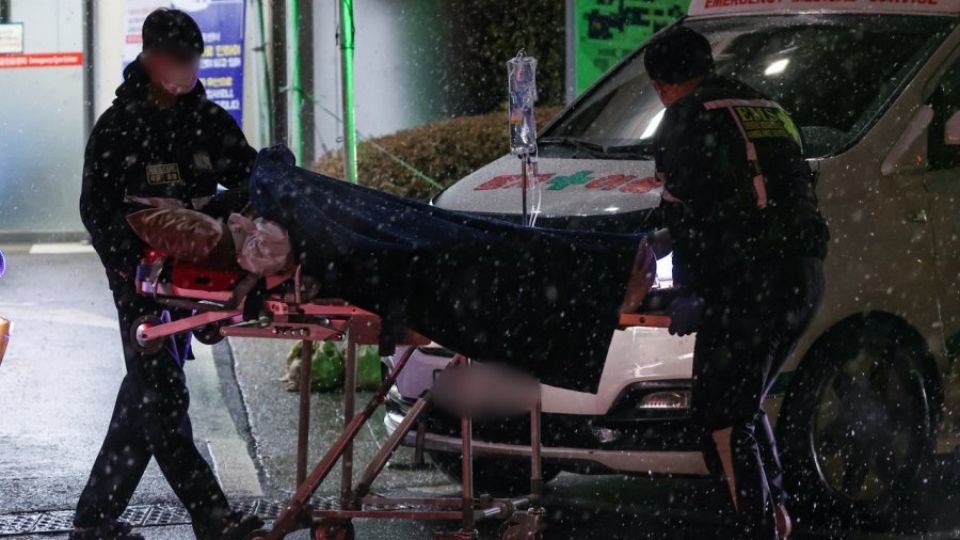February 23, 2024
SEOUL – The major lobby group for doctors said Thursday that it would stage a massive rally in Seoul with all of its members from across the county on March 3 to protest the government’s move to significantly increase the number of seats at medical schools.
The demonstration, initially set for March 10, was moved up at the doctors’ urging, according to the Korean Medical Association, the largest group of doctors here with some 140,000 members.
As the two sides continue to lock horns over the planned hike, the number of junior workers resigning from 100 teaching hospitals was nearing the 10,000 mark on Thursday, despite government threats of legal consequences in response to collective action.
As of Wednesday at 10 p.m., 9,275 trainee doctors out of some 13,000 — 74.4 percent of the total — had submitted their resignations, up 459 from Tuesday’s figure, while 8,024 of them have left their workplaces, according to Second Vice Health Minister Park Min-soo on Thursday. The hospitals have not yet accepted the resignation letters, he added.
The government has so far issued return-to-work orders to 6,038 trainee doctors, demanding they return to their workplaces to treat patients, he said.
The government made the demand based on Article 59 of the Medical Service Act, in which the health minister may order medical personnel to resume services if there is a “reasonable ground to believe that suspension of medical service without any justifiable ground is likely to cause great difficulties in providing medical treatment to patients.”
Fifty-seven complaints were newly filed to the Health Ministry’s reporting and support center as of Wednesday at 6 p.m., bringing the total to 149. Of them, 44 concerned delayed surgeries, six cases were about refusal of treatment, five were about canceled appointments and two were of delayed hospitalization.
Separately, the government is mulling asking the Labor Ministry and the National Tax Service to check on medical institutions, including the “Big Five” hospitals, regarding their management status and if there have been any unfair labor practices, according to reports.
The Health Ministry declined to comment on the report, saying nothing has been decided at the moment.
As patients remain in limbo with canceled and delayed treatments, an association advocating for patients with severe diseases issued a statement Thursday urging the trainee doctors to go back to their hospitals, saying the walkout has disrupted life for critically ill patients and their care.
“(We) are afraid that the medical gap will persist as doctors’ groups and the government remain adamant and patients would eventually become victims of this medical crisis,” the statement read.
Meanwhile, Lee Dong-wook, who heads the Gyeonggi Provincial Medical Association, came under fire for remarks that people like “smart and intelligent physicians.”
Lee made the comment during a prerecorded debate about raising the medical school enrollment quota that aired on MBC late Tuesday while trying to underscore that medical school is only for the smartest and most gifted students.
“If you select students with low grades from local medical schools and force them to work, their motivation will decrease. Would anyone want to receive medical treatment from such doctors?” he posed.
“We have no choice but to select (medical school) candidates with very low grades for the admissions for students in rural areas. Those who rank between No. 20-30 in their classes would be able to go (to medical school), but the public would not want them.”


